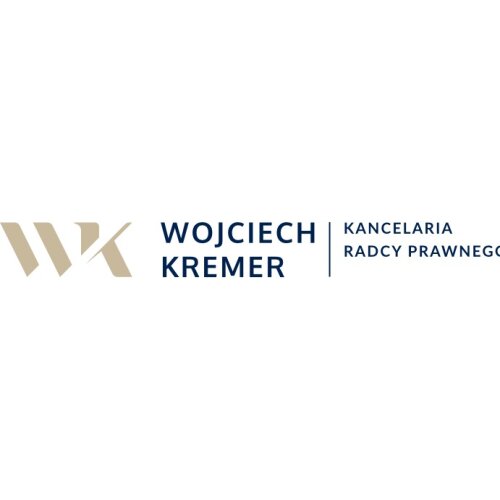Best Restructuring & Insolvency Lawyers in Krakow
Share your needs with us, get contacted by law firms.
Free. Takes 2 min.
List of the best lawyers in Krakow, Poland
About Restructuring & Insolvency Law in Krakow, Poland
Restructuring and insolvency law in Krakow, Poland, provides a legal framework for businesses and individuals facing financial distress or insolvency. The primary goal of these laws is to protect creditors' rights while allowing debtors the chance to reorganize or restructure their debts to avoid liquidation where possible. In recent years, Poland has modernized its insolvency and restructuring processes in line with European Union standards. This allows greater flexibility for negotiations, court-supervised arrangements, and the possibility of restoring business viability before serious financial consequences like bankruptcy or liquidation arise.
Why You May Need a Lawyer
Legal guidance is crucial in restructuring and insolvency matters due to the complexity and potential impact on business operations, personal assets, and creditor relationships. Common situations requiring legal help include:
- When a business is unable to meet its financial obligations
- If facing formal insolvency proceedings initiated by creditors
- When seeking to reorganize a company’s debts to avoid bankruptcy
- For negotiating or drafting restructuring agreements
- If you are a creditor looking to recover outstanding debts from an insolvent debtor
- Compliance with court procedures and ensuring your rights are protected
A lawyer can help assess financial situations, guide you through the appropriate legal procedures, represent you in court, and negotiate with creditors or other stakeholders.
Local Laws Overview
The key legislation regulating restructuring and insolvency in Krakow, and more broadly in Poland, is the Restructuring Law and the Bankruptcy Law (Prawo upadłościowe). Some essential aspects include:
- Restructuring proceedings allow for court-supervised or out-of-court agreements between debtors and creditors, with the aim of safeguarding the business and jobs.
- Bankruptcy proceedings apply when restructuring is not possible, leading either to liquidation of assets to satisfy creditors or debt relief for individuals.
- Court involvement is a fundamental feature, including appointment of a restructuring advisor or trustee to oversee the process.
- Several restructuring options exist, such as accelerated arrangement proceedings, arrangement proceedings, rehabilitation proceedings, and sanation proceedings, each tailored to different financial scenarios.
- Creditors are generally repaid in order of priority set by law.
- Certain transactions made prior to the declaration of insolvency can be challenged if deemed detrimental to creditors.
Restructuring and insolvency procedures are primarily initiated before the district courts (sąd rejonowy) with jurisdiction over the debtor’s location, such as the District Court for Krakow.
Frequently Asked Questions
What is the difference between restructuring and insolvency?
Restructuring aims to help companies or individuals reorganize debts and business operations to avoid insolvency or bankruptcy. Insolvency is the legal state in which a person or business cannot pay debts as they become due, which can lead to bankruptcy proceedings.
Can both individuals and businesses apply for restructuring in Krakow?
Primarily, restructuring proceedings are intended for businesses, including companies and sole entrepreneurs. However, individuals can apply for personal bankruptcy if they are unable to pay their debts.
How long do restructuring or insolvency proceedings usually take?
The duration varies depending on the complexity of the case, type of proceedings, and number of creditors involved. Some simplified restructuring processes can take a few months, while more complex cases may take a year or longer.
What are the consequences of filing for insolvency?
Filing for insolvency can result in loss of control over assets, potential closure or liquidation of a business, and impacts on credit ratings. In some cases, individuals may be relieved of their debts after liquidation, but certain liabilities may remain.
What debts are excluded from insolvency or restructuring proceedings?
Certain obligations, such as alimony, criminal fines, and some tax liabilities, are not always dischargeable under Polish law, even after bankruptcy or restructuring.
Can creditors object to restructuring proposals?
Yes, creditors have the right to object to proposed restructuring plans during creditor meetings. The court will ultimately decide on the approval and binding nature of the arrangement based on creditor votes and legal compliance.
Does the court automatically accept all filings for restructuring or insolvency?
No, the court reviews filings and may refuse to open proceedings if requirements are not met, such as insufficient evidence of financial distress or lack of a feasible restructuring plan.
What happens to employees if a company enters restructuring or insolvency?
Employees are protected by Polish labor law, but there may be layoffs if a business needs to reduce costs. In some cases, wage guarantees are available through the Guaranteed Employee Benefits Fund.
Can restructuring help avoid bankruptcy in Krakow?
Yes, the restructuring process is specifically designed to help viable businesses avoid bankruptcy by agreeing on new payment terms with creditors and implementing operational changes.
Is it necessary to hire a lawyer for restructuring or insolvency proceedings?
While not always mandatory, it is highly advisable due to the legal complexity and risks involved. A lawyer can ensure compliance, protect your interests, and represent you effectively during proceedings.
Additional Resources
Several organizations and governmental bodies can provide assistance and information regarding restructuring and insolvency in Krakow, Poland:
- District Court for Krakow: Handles local restructuring and insolvency filings and proceedings.
- National Debt Register (Krajowy Rejestr Długów): Provides creditor and debtor information.
- Polish Ministry of Justice (Ministerstwo Sprawiedliwości): Offers resources and guidance on legal procedures related to insolvency and restructuring.
- Polish Association of Restructuring Practitioners: Offers training and lists certified restructuring advisors.
- Local legal aid centers in Krakow: Offers basic legal advice for individuals and small businesses.
Next Steps
If you believe you may need legal advice or assistance with restructuring or insolvency in Krakow, consider the following steps:
- Assess your current financial situation and gather relevant documents including debts, contracts, and company accounts.
- Contact a qualified lawyer or restructuring advisor experienced in Polish restructuring and insolvency law.
- Request an initial consultation to discuss your situation and understand available legal options.
- Work with your legal representative to prepare necessary court documents or restructuring proposals.
- Continue to communicate with creditors and comply with court requirements throughout the process.
Taking early action and seeking professional legal advice can help protect your rights and improve your chances of resolving financial difficulties effectively.
Lawzana helps you find the best lawyers and law firms in Krakow through a curated and pre-screened list of qualified legal professionals. Our platform offers rankings and detailed profiles of attorneys and law firms, allowing you to compare based on practice areas, including Restructuring & Insolvency, experience, and client feedback.
Each profile includes a description of the firm's areas of practice, client reviews, team members and partners, year of establishment, spoken languages, office locations, contact information, social media presence, and any published articles or resources. Most firms on our platform speak English and are experienced in both local and international legal matters.
Get a quote from top-rated law firms in Krakow, Poland — quickly, securely, and without unnecessary hassle.
Disclaimer:
The information provided on this page is for general informational purposes only and does not constitute legal advice. While we strive to ensure the accuracy and relevance of the content, legal information may change over time, and interpretations of the law can vary. You should always consult with a qualified legal professional for advice specific to your situation.
We disclaim all liability for actions taken or not taken based on the content of this page. If you believe any information is incorrect or outdated, please contact us, and we will review and update it where appropriate.













